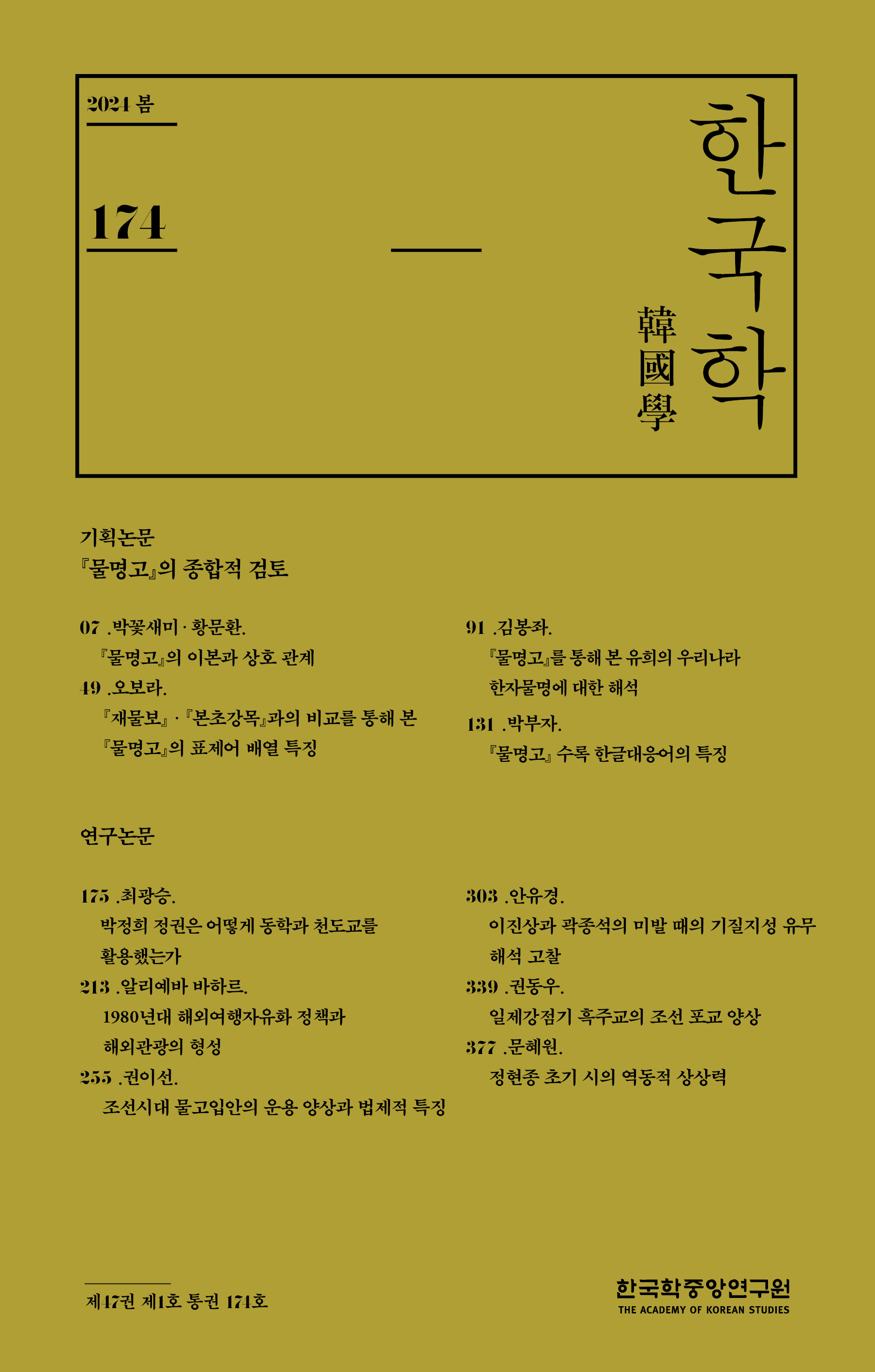
- P-ISSN 2671-8197
- E-ISSN 2733-936X
.jpg)
This study examines the content of an Josang Gut by analyzing the Saseols of the Jeonbuk Josang Gut, as well as the universality and characteristics of the Jeonbuk Josang Gut, by comparing it with its counterparts in other regions. The content of many ancestor Guts of other regions show a simple composition, whereas the Jeonbuk Josang Gut has structure and diversity in the composition of its content. Its first part sings about the transience of life and unfolds the history of ancestors in scenes about the death of people, the funeral process, the route to the next world, and trials in the next world. Given the characteristics of ancestral gods based on the worship of people who have died, the second part guides deceased ancestors to Heaven through Buddhist prayers. An Josang Gut ends with guidance of ancestors to Heaven. The Jeonbuk Josang Gut has interesting parts depicting a scene where a character faces his death by the hand of the angel of death, his journey to the next world, the scenery he faces when arriving in the next world, and his trials in the next world. Ancestor Guts are helpful for understanding Korea’s traditional funeral culture based on Confucianism and popular beliefs. The scene where ancestral gods are guided to Heaven through Buddhist prayers in the second part of the Jeonbuk Josang Gut is largely influenced by Buddhism. Ancestor Guts also contain Napeumohaeng to recite the Haewon of ancestral gods. The Jeonbuk Josang Gut offers a representative combination of Confucianism, popular beliefs, Buddhism, and other philosophical ideas and embodies the life and traditional culture of Korea. The present study contributes to the development of a body of literature on shaman songs since few studies have attempted to analyze the Saseols of Ibanmuga. This study of Jeonbuk shaman songs uses the collection of shaman song material accumulated during field studies and investigates shaman songs transmitted in Jeonbuk that saw an earlier decline than in other regions, thus holding significance.